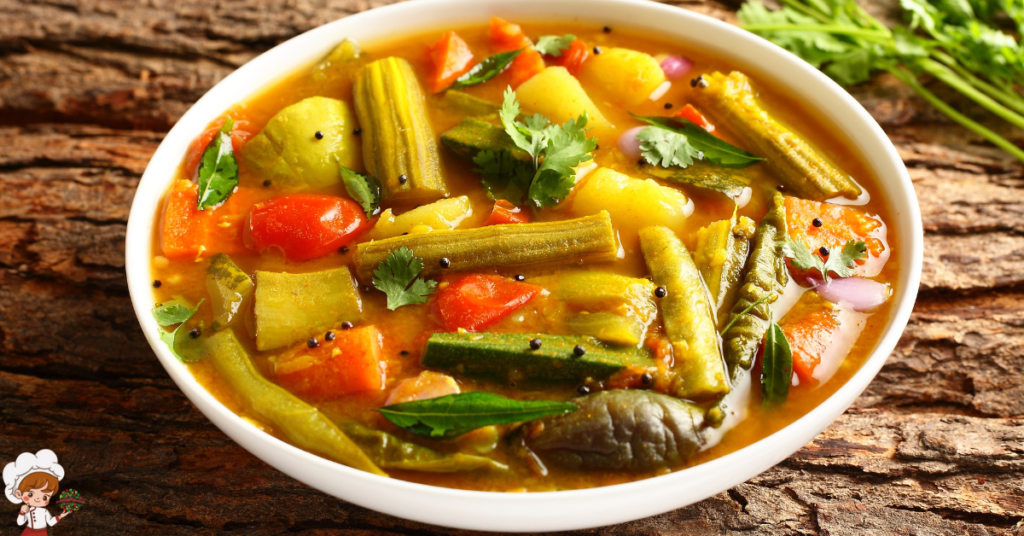Why Are There So Many Amazing Vegetarian-Friendly Swedish Cuisine Options

Swedish cuisine offers numerous Vegetarian-Friendly Swedish Cuisine Options due to a growing emphasis on health and sustainability. You’ll notice chefs creatively adapting traditional dishes with seasonal vegetables and local produce, responding to consumers’ demand for plant-based meals. Younger generations embrace vegetarianism, encouraged by social media and a focus on ethical eating. Plus, government support for sustainable practices fosters accessibility to fresh ingredients. Sweden’s diverse agricultural landscape enhances the variety of flavors, making vegetarian dishes as satisfying as their meaty counterparts. If you explore further, you’ll discover even more about how these trends are shaping modern Swedish dining.
Historical Context of Swedish Cuisine
Swedish cuisine has deep roots that reflect the country’s geography and history. When you explore this culinary landscape, you’ll notice how traditional ingredients like potatoes, herring, and rye have shaped the Swedish palate. The climate and terrain influence what’s available, leading to regional variations that make each area unique. For instance, the coastal regions rely heavily on seafood, while the inland areas focus more on root vegetables and game.
In Sweden, food has always been about survival and sustainability. Historically, the long winters prompted people to preserve food through methods like pickling and smoking. These techniques not only extend the shelf life of ingredients but also infuse dishes with distinct flavors. As you investigate Swedish meals, you’ll find that many traditional recipes have evolved over time, adapting to local tastes and available resources.
Moreover, Sweden’s agricultural practices have embraced seasonal produce. You’ll discover that each region showcases its specialties, from the creamy gravlax of the south to the hearty reindeer stew of the north. This rich tapestry of flavors reflects the ingenuity of the Swedish people in making the most out of their environment.
As you savor the dishes, remember that they tell a story of resilience and adaptation. The historical context of Swedish cuisine not only preserves aspects of the past but also lays the groundwork for today’s vegetarian-friendly options, inviting you to experience a culinary heritage that values both tradition and innovation.
The Rise of Plant-Based Diets
You’ve likely noticed a growing trend toward plant-based diets, driven by a desire for better health and a greener planet. As awareness of environmental sustainability increases, many people are rethinking their food choices. This cultural shift is transforming culinary traditions, including Swedish cuisine, into more vegetarian-friendly options.
Growing Health Consciousness
As awareness about health and nutrition grows, more people are embracing plant-based diets for their myriad benefits. You might notice that this shift reflects broader health trends where individuals prioritize their well-being, seeking options that align with their dietary preferences. A plant-based diet isn’t just a trend; it’s a lifestyle choice that supports better health outcomes.
Research shows that diets rich in fruits, vegetables, and whole grains can reduce the risk of chronic diseases, including heart disease and diabetes. By choosing more plant-based meals, you’re not only enhancing your nutrient intake but also exploring diverse flavors and textures in your meals. This culinary adventure is particularly evident in Swedish cuisine, which offers a range of vegetarian-friendly options that are both delicious and wholesome.
You may find that local restaurants and grocery stores are adapting to these health-conscious shifts, making it easier than ever to find satisfying vegetarian dishes. With the rise in awareness about the benefits of a plant-based lifestyle, you’ll likely see even more options popping up, encouraging you to make choices that nourish your body while enjoying the rich traditions of Swedish cuisine.
Environmental Sustainability Awareness
More people are recognizing the significant impact of their food choices on the environment, leading to a surge in plant-based diets. You might’ve noticed how these diets align with the growing awareness of environmental sustainability. By choosing plant-based options, you contribute to reducing greenhouse gas emissions, conserving water, and promoting biodiversity.
Sustainable farming plays an essential role in this shift. When farmers adopt eco-friendly practices, they minimize chemical use, enhance soil health, and support local ecosystems. This not only benefits the environment but also guarantees that the food you eat is fresher and more nutritious.
In Sweden, you’ll find an increasing number of restaurants and cafes emphasizing vegetarian-friendly dishes that highlight seasonal, locally-sourced produce. This commitment to sustainability means that you can enjoy delicious meals while supporting responsible food systems.
As awareness grows, more people are also seeking education on the environmental impact of their dietary choices. You’re part of a movement that values not just health, but also the planet’s well-being. By embracing a plant-based diet, you’re making a statement about the kind of world you want to live in.
Cultural Culinary Evolution
With the rising awareness of environmental sustainability, culinary traditions are shifting to embrace plant-based diets. You might notice that more Swedish restaurants are incorporating fresh, local vegetables and legumes into their menus. This isn’t just a trend; it’s a response to the growing demand for healthier, eco-friendly food options.
Food innovation plays a significant role in this evolution. Chefs are experimenting with traditional recipes, replacing meat with creatively prepared plant-based ingredients. For instance, you’ll find classics like kottbullar being reimagined with lentils or mushrooms, making them just as hearty and satisfying.
As you explore Swedish cuisine, you’ll see the vibrant colors of seasonal vegetables taking center stage. This shift not only highlights the natural flavors of the ingredients but also reflects a commitment to sustainability. You can feel good about your choices while enjoying the rich cultural heritage of Sweden.
In this culinary landscape, the rise of plant-based diets isn’t just a passing phase; it’s a thoughtful evolution that respects both tradition and the environment. So, immerse yourself and savor the innovative vegetarian-friendly options available to you!
Cultural Attitudes Towards Vegetarianism
Sweden’s historical dietary practices have long been rooted in meat consumption, but modern health trends are shifting perceptions. You might notice how more people are embracing vegetarianism as they seek healthier lifestyles. This change reflects a growing awareness of the benefits of plant-based diets in Swedish culture.
Historical Dietary Practices
How have cultural attitudes towards vegetarianism evolved in Sweden over the years? Historically, Sweden’s diet revolved around traditional farming practices that emphasized meat and dairy products, often sourced from local livestock. These practices reflected the country’s agricultural heritage, where regional ingredients shaped daily meals and family gatherings.
However, as societal values shifted over time, a growing awareness of environmental issues and animal welfare began to influence dietary choices. In the late 20th century, more people started to embrace vegetarianism, driven by a desire for healthier lifestyles and sustainable eating habits. This change marked a significant cultural transformation, as dishes that were once meat-centric started incorporating more plant-based options.
You might notice that today, many Swedish restaurants proudly feature vegetarian-friendly dishes that celebrate the country’s rich agricultural diversity. Chefs creatively use local vegetables, grains, and legumes, showcasing the versatility of regional ingredients. This evolution in dietary practices not only reflects a response to modern values but also highlights Sweden’s long-standing connection to its land and farming traditions. As a result, vegetarianism has become an integral part of Sweden’s culinary landscape.
Modern Health Trends
Many people in Sweden today are increasingly adopting vegetarian diets as they become more health-conscious. This shift isn’t just a trend; it’s a response to a growing awareness of the health benefits associated with plant-based eating. You’ll find that many Swedes are keen to explore plant-based innovations, from meat alternatives to creative vegetable dishes that highlight local produce.
As health consciousness rises, restaurants and food brands are responding by expanding their vegetarian options. You might notice menus filled with colorful salads, hearty grain bowls, and unique plant-based proteins that cater to diverse tastes. This change reflects a broader cultural attitude that values wellness and sustainability.
Moreover, the influence of social media and health influencers has played a significant role in promoting vegetarianism. You’re likely to see vibrant food pictures and recipes that inspire you to experiment with plant-based meals at home.
Sweden’s Agricultural Diversity
With its rich tapestry of landscapes and climates, Sweden offers a remarkable agricultural diversity that caters to various culinary preferences. You’ll find that local farms thrive in different regions, thanks to Sweden’s diverse climate conditions. This variation allows farmers to implement sustainable farming practices, which in turn supports the production of organic produce.
In recent years, many Swedish farmers have adopted innovative agricultural practices, such as crop rotation, to maintain soil health and enhance biodiversity. These initiatives are essential for guaranteeing that the land remains productive while minimizing environmental impacts. As a result, you can enjoy a wide range of seasonal harvests that reflect the unique flavors of Sweden’s regions.
The emphasis on local farms in Sweden not only promotes fresh ingredients but also strengthens community ties. By sourcing food from nearby producers, you’re contributing to a more sustainable food system. Many of these farms participate in biodiversity initiatives, working to preserve native plant species while offering a variety of fruits, vegetables, and grains.
When you explore Swedish cuisine, you’ll likely notice how these factors converge to create an array of vegetarian-friendly options. The commitment to sustainable farming and organic practices guarantees that the ingredients you’re enjoying are not just fresh but also ethically sourced. This agricultural diversity makes it easy for you to embrace a plant-based lifestyle while savoring the rich flavors of Sweden.
Seasonal Ingredients in Swedish Cooking
Swedish cooking thrives on seasonal ingredients, showcasing the bounty of each time of year. By embracing local produce, you can truly experience the essence of Swedish cuisine. Each season brings a unique array of flavors, encouraging you to adapt your meals to what’s fresh and available. In spring, crisp greens, asparagus, and radishes emerge, inviting you to create vibrant salads and light dishes that celebrate the awakening of nature.
As summer rolls in, you’ll find an abundance of berries like lingonberries and cloudberries, perfect for making jams or adding to desserts. You can also experiment with root vegetables, which are plentiful in autumn. Carrots, beets, and potatoes provide a hearty foundation for your meals, allowing you to craft comforting dishes that warm the soul.
Winter may seem intimidating with its cold temperatures, but it offers its own treasures. You can enjoy preserved items from previous seasons, such as pickled vegetables and dried herbs, adding depth and flavor to your cooking. Utilizing these seasonal flavors not only enhances your meals but also supports local farmers and producers.
Incorporating seasonal ingredients isn’t just about taste; it’s about connecting with the land and its rhythms. You’ll find that by aligning your cooking with the seasons, you’ll create dishes that are not only delicious but also sustainable and deeply rooted in Swedish tradition. So, embrace the local produce at your markets, and let the seasons guide your culinary adventures!
Influence of Global Food Trends
As you explore the vibrant world of Swedish cuisine, it’s impossible to ignore the impact of global food trends that have started to shape local dishes. In recent years, Sweden has embraced culinary fusion, blending traditional flavors with influences from around the globe. This evolution has opened up a treasure trove of vegetarian-friendly options, making it easier than ever to enjoy plant-based meals.
You might find dishes inspired by Mediterranean flavors, featuring ingredients like olives, sun-dried tomatoes, and fresh herbs. These influences complement classic Swedish staples, creating vibrant salads and hearty grain bowls that celebrate both local and global cuisine. Additionally, the rise of Asian culinary trends has led to innovative uses of ingredients like tofu, miso, and various spices, adding depth and excitement to traditional Swedish recipes.
Moreover, the increasing popularity of plant-based diets worldwide has pushed Swedish chefs to experiment with new flavors and techniques. They’re incorporating elements from Indian, Latin American, and Middle Eastern cuisines, resulting in a diverse array of vegetarian options on menus across the country. You may find dishes like spiced lentil patties served with a Swedish twist or creamy risottos infused with Nordic herbs.
This culinary fusion not only reflects the changing tastes of diners but also encourages sustainability and creativity in the kitchen. So, as you navigate the delightful offerings of Swedish vegetarian cuisine, remember that global food trends are playing a significant role in shaping what’s on your plate.
Health Benefits of Vegetarian Options
When you choose vegetarian options, you’re fueling your body with nutrient-dense ingredients that support overall health. These meals can promote heart health and help you manage your weight more effectively. Embracing vegetarian dishes isn’t just tasty; it’s a smart choice for your well-being.
Nutrient-Dense Ingredients
Often overlooked, nutrient-dense ingredients play a crucial role in vegetarian Swedish cuisine, offering a wealth of health benefits. By incorporating a variety of plant-based proteins and traditional vegetables, you can create meals that are not only flavorful but also packed with essential nutrients.
Legumes, such as lentils and chickpeas, are excellent sources of plant-based proteins that support muscle development and overall health. When combined with traditional vegetables like potatoes, carrots, and beets, you’ll benefit from an array of vitamins and minerals. These ingredients are rich in dietary fiber, which aids digestion and helps maintain a healthy weight.
Moreover, vegetables like kale and cabbage, often found in Swedish dishes, are full of antioxidants that combat inflammation and promote overall wellness. The balance of these nutrient-dense ingredients guarantees you’re not just filling your plate but nourishing your body with wholesome foods.
Heart Health Advantages
Heart health is a vital aspect of overall wellness, and embracing vegetarian options can greatly contribute to it. When you choose plant-based foods, you’re often opting for meals rich in fiber, vitamins, and minerals while being lower in saturated fats. This dietary impact can lead to reduced cholesterol levels, lowering your risk of heart disease.
Incorporating more fruits, vegetables, whole grains, and legumes into your diet not only boosts your nutrient intake but also helps maintain healthy blood pressure. Several studies indicate that individuals who follow a vegetarian diet tend to have better heart health compared to those who consume higher amounts of red and processed meats.
Moreover, Swedish cuisine offers a variety of vegetarian dishes that can be both delicious and heart-healthy. Dishes featuring root vegetables, berries, and whole grains can provide essential nutrients and antioxidants that support cardiovascular health.
Weight Management Support
Choosing vegetarian options can also play a significant role in weight management. By incorporating more plant-based foods into your diet, you can naturally reduce your caloric intake. Fruits, vegetables, whole grains, and legumes are often lower in calories and higher in nutrients compared to many animal products. This means you can enjoy larger portions while still maintaining a healthy caloric balance.
Moreover, a vegetarian diet encourages you to be more mindful about food choices, steering you away from high-calorie, processed foods. When you fill your plate with wholesome, nutrient-dense options, you’re less likely to overeat. This approach complements your exercise balance, making it easier to achieve and maintain your weight goals.
Additionally, vegetarian meals are rich in fiber, which can help you feel fuller for longer. This satiety can further assist in managing your appetite, preventing those pesky cravings that often lead to mindless snacking. Combining these diet choices with regular physical activity enhances your overall weight management efforts, allowing you to feel energized and satisfied. Embracing vegetarian-friendly Swedish cuisine can consequently be a delicious and effective way to support your weight management journey.
Environmental Sustainability Efforts
Many Swedish restaurants are embracing environmental sustainability efforts, recognizing the importance of reducing their ecological footprint. You’ll find that a growing number of these establishments prioritize sustainable agriculture in their sourcing practices. They work closely with local farmers who use eco-friendly practices, ensuring that the produce you enjoy is not only fresh but also grown with minimal environmental impact.
By supporting local producers, restaurants contribute to a circular economy that reduces transportation emissions and promotes biodiversity. This means that when you dine out, you’re likely consuming seasonal vegetables and grains that are cultivated without harmful pesticides or fertilizers. This commitment to sustainability extends beyond just the ingredients; many restaurants are also adopting energy-efficient systems and waste reduction strategies in their kitchens.
Moreover, you might notice that some establishments are eliminating single-use plastics, opting instead for biodegradable or reusable options. This shift not only enhances their sustainability efforts but also resonates with eco-conscious diners like you. By making these choices, Swedish restaurants encourage guests to be more mindful of their own environmental impact as well.
As you explore the vegetarian-friendly options available, you’ll appreciate how these sustainability efforts contribute to a healthier planet. You’re not just enjoying a meal; you’re participating in a movement that values ecological responsibility and encourages a more sustainable future. So, when you choose to dine at these restaurants, you’re supporting a more sustainable way of eating that benefits both you and the environment.
Popular Vegetarian Swedish Dishes
When you think of Swedish cuisine, classic meatballs often come to mind, but there are delicious vegetarian adaptations to explore. Seasonal vegetable dishes also shine in this culinary tradition, showcasing fresh, local ingredients. Let’s take a closer look at these popular vegetarian options that offer a taste of Sweden without meat.
Classic Swedish Meatballs Adaptation
For those seeking a delicious alternative to traditional Swedish meatballs, adapting the recipe for a vegetarian diet offers a delightful twist. You can create mouthwatering meatball variations using plant-based ingredients that capture the essence of the original dish. Start with a base of lentils or chickpeas, which provide a hearty texture and protein.
Add finely chopped mushrooms and onions for depth of flavor. Mix in breadcrumbs made from whole grain or gluten-free bread to bind everything together. Season your mixture with classic Swedish spices like allspice and nutmeg to give it that authentic taste.
Once your mixture is ready, shape it into balls and pan-fry them until golden brown. Serve these vegetarian meatballs with a creamy, plant-based gravy that mirrors the traditional sauce. You can also pair them with lingonberry sauce and mashed potatoes for a complete meal that satisfies.
This adaptation not only preserves the beloved Swedish tradition but also welcomes those on a vegetarian journey to enjoy the rich flavors of Swedish cuisine. Embrace the versatility of meatball variations, and you’ll discover that vegetarian options can be just as comforting and delicious.
Seasonal Vegetable Dishes
Swedish cuisine celebrates the bounty of seasonal vegetables, showcasing a variety of dishes that highlight fresh, local produce. You’ll find that seasonal flavors take center stage, making meals not only delicious but also vibrant and nutritious.
One popular dish is “Rösti,” a crispy potato and vegetable cake that can include seasonal veggies like carrots, leeks, or zucchini. This dish is perfect for letting the natural tastes of locally sourced ingredients shine through. Another favorite is “Grönsakspaj,” a vegetable pie filled with a medley of seasonal greens, such as spinach and chard, often paired with creamy cheese.
Don’t forget about “Sill,” a pickled herring dish that can be made vegetarian by using seasonal vegetables instead. Whether it’s beets, onions, or cucumbers, the focus on local sourcing brings a fresh twist to traditional recipes.
As you explore these seasonal vegetable dishes, you’ll discover how Swedish cuisine embraces the rhythm of the seasons, ensuring that every bite reflects the richness of nature’s offerings. Embracing these flavors not only supports local farmers but also enhances your dining experience.
Innovative Chefs Leading the Change
In the heart of Sweden’s culinary scene, innovative chefs are redefining traditional recipes to embrace vegetarianism without sacrificing flavor. You’ll find these trailblazers experimenting with local ingredients and traditional techniques, showcasing their culinary creativity in mouthwatering dishes. They’re not just swapping out meat; they’re diving deep into plant-based innovation, transforming classic favorites into vibrant vegetarian options that excite the palate.
Take, for instance, the famous Swedish meatballs. You might have noticed how some chefs have turned this iconic dish into a plant-based masterpiece using lentils, mushrooms, and spices. The result? A hearty alternative that retains the comforting essence of the original while appealing to modern dietary preferences. And it doesn’t stop there. These chefs are also reimagining herring, opting for marinated vegetables and seaweed to echo those beloved flavors.
You’ll see them incorporating seasonal produce, creating dishes that reflect Sweden’s rich agricultural heritage. By embracing the bounty of the land, they elevate vegetarian cooking to new heights. It’s all about crafting meals that are not only visually stunning but also nourishing and satisfying.
As you explore Sweden’s vibrant food scene, you’ll discover how these innovative chefs have paved the way for a new culinary landscape. They’re proving that vegetarian cuisine can be just as enticing as its meat-centric counterparts, inspiring more people to embrace a plant-based lifestyle. Through their vision, you can savor the true essence of Swedish cuisine, reimagined for a sustainable future.
The Role of Food Festivals
While exploring Sweden’s culinary landscape, you’ll find that food festivals play an important role in promoting vegetarian-friendly options. These events create a vibrant atmosphere where chefs showcase their creativity and innovation, offering you a chance to taste a variety of plant-based dishes. From classic Swedish flavors to modern interpretations, food festivals highlight the versatility of vegetarian cuisine.
The festival impact goes beyond just delicious food; they inspire local communities and chefs to embrace food innovation. You may notice how these gatherings encourage collaboration between chefs, farmers, and local producers. This collaboration often results in unique dishes that celebrate seasonal ingredients, making vegetarian options not just an afterthought but a central focus.
As you stroll through festival booths, you’ll see how these events introduce you to new flavors and cooking techniques. You might even discover that some traditional dishes have been reimagined to cater to vegetarian diets, showcasing the adaptability of Swedish cuisine. The excitement generated at these festivals often sparks conversations about sustainability and healthy eating, further promoting vegetarianism among attendees.
Moreover, food festivals provide a platform for local businesses to shine, allowing you to support the community while enjoying innovative dishes. This connection fosters a sense of pride and encourages continued exploration of vegetarian options in everyday dining. Overall, food festivals play a crucial role in shaping Sweden’s culinary scene, making it more inclusive and exciting for everyone.
Vegetarianism Among Younger Generations
As food festivals spark interest in vegetarian cuisine, younger generations are increasingly embracing plant-based diets. This shift reflects changing youth preferences, with many opting for dietary choices that align with their values, such as sustainability and health. You might notice how social media plays a notable role in this trend, as influencers promote vibrant, plant-based meals that appeal to your aesthetic senses and taste buds.
More than ever, young people are becoming aware of the environmental impact of their food choices. They understand that adopting a vegetarian lifestyle can considerably reduce their carbon footprint. This newfound awareness often leads to conversations among friends, where plant-based options are celebrated and explored.
Moreover, the rise of diverse vegetarian-friendly options in Swedish cuisine makes it easier for you to experiment with new flavors and ingredients. You’ll find that many restaurants now cater specifically to this demographic, offering creative dishes that challenge traditional notions of vegetarian food.
In schools and universities, more plant-based meals are appearing in cafeterias, reflecting this growing trend. As you engage with your peers, it’s clear that dietary choices are influenced by a desire for healthier lifestyles and ethical eating.
Ultimately, the movement toward vegetarianism among younger generations isn’t just a fleeting trend; it’s a lifestyle choice that prioritizes well-being and environmental responsibility. By choosing vegetarian options, you’re not only enhancing your own health but also contributing to a larger cultural shift towards more sustainable eating practices.
Government Support for Sustainable Practices
Government support for sustainable practices plays an essential role in fostering a more environmentally friendly society. In Sweden, various government initiatives promote sustainable agriculture, making vegetarian-friendly options more accessible and appealing. You’ll notice that these efforts not only support the environment but also encourage local economies and healthier diets.
One significant aspect of government initiatives is the promotion of organic farming. By offering subsidies and grants to farmers who adopt sustainable practices, the government incentivizes the shift from conventional farming methods to those that are less harmful to the planet. This assistance helps you enjoy fresh, local produce while knowing it’s grown sustainably.
Moreover, the Swedish government actively invests in research and development for sustainable agriculture. By funding projects and studies that focus on innovative farming techniques, they guarantee that farmers have the tools and knowledge needed to produce food in a way that respects the environment. This investment translates into a wider variety of vegetarian options in restaurants and supermarkets, making it easier for you to choose plant-based meals.
Additionally, government initiatives often emphasize education and awareness. By creating campaigns that inform the public about the benefits of sustainable eating, they encourage you to make more conscious food choices. The result is a vibrant food culture that embraces vegetarianism, ultimately contributing to a healthier and more sustainable future for everyone. Thanks to these efforts, you can find plenty of delicious vegetarian-friendly options in Swedish cuisine.
Collaborations With Local Farmers
Collaborations with local farmers are transforming the landscape of vegetarian-friendly cuisine in Sweden. By embracing local sourcing, restaurants and chefs are tapping into the abundance of fresh, seasonal produce that local farms provide. This not only enhances the quality of their dishes but also supports the community and promotes sustainable practices.
When you choose a vegetarian meal in Sweden, you’re often enjoying ingredients that are harvested just hours before they reach your plate. Farm partnerships allow chefs to build strong relationships with farmers, ensuring that they receive the best produce available. You may find unique varieties of vegetables and fruits that aren’t commonly found in grocery stores, allowing for creativity and innovation in the kitchen.
These collaborations also foster a sense of trust and transparency between consumers and producers. You know exactly where your food is coming from, and that it’s grown with care. Many Swedish restaurants now proudly display the names of their local partners on their menus, connecting diners to the source of their meals.
Furthermore, these partnerships encourage farmers to diversify their crops, leading to a wider variety of vegetarian options. You’ll discover dishes featuring heirloom tomatoes, vibrant greens, and other specialty produce that reflect the local terroir.
In essence, local sourcing through farm partnerships is not just a trend; it’s a crucial part of Sweden’s commitment to creating a rich, vegetarian-friendly culinary scene. You’re not just enjoying a meal; you’re participating in a movement that values sustainability, quality, and community.
Future of Vegetarian Swedish Cuisine
The future of vegetarian Swedish cuisine looks promising, with innovative chefs embracing plant-based ingredients to create exciting dishes that reflect both tradition and modernity. As you explore future trends, you’ll notice a shift toward using locally sourced, seasonal produce. This not only supports sustainability but also enhances the flavors and freshness of the dishes you encounter.
Culinary innovations are at the forefront, with chefs experimenting with traditional Swedish recipes, replacing meat with creative plant-based alternatives. You might find classic dishes like köttbullar reimagined using lentils or chickpeas, paired with rich sauces and served alongside traditional sides. It’s a delightful way to enjoy familiar flavors without compromising on your dietary choices.
Moreover, advancements in technology are enabling chefs to create more complex textures and flavors from vegetables, grains, and legumes. You may soon see options like plant-based gravlax or smörgåsbord featuring innovative spreads made from nuts and seeds. The exploration of international flavors and fusion cuisine is also becoming more prevalent, making vegetarian meals even more exciting.
As the demand for vegetarian options continues to rise, restaurants are likely to adapt their menus to cater to this growing audience. This means you’ll have an increasing variety of vegetarian-friendly options to choose from, allowing you to indulge in the best of Swedish cuisine while staying true to your dietary preferences. The future is bright, and the possibilities are endless in the domain of vegetarian Swedish cuisine.
Frequently Asked Questions: Vegetarian-Friendly Swedish Cuisine Options
What Traditional Swedish Dishes Can Be Easily Adapted to Vegetarian Versions?
You can easily create vegetarian adaptations of traditional recipes like köttbullar using plant-based meat, or make a hearty svartvinbärssylt instead of meat-based sauces. Experiment with herring substitutes for a delightful twist on classic dishes.
Are There Any Famous Vegetarian Swedish Cookbooks?
Yes, you’ll find some fantastic vegetarian cookbook recommendations focusing on Swedish cuisine. Look for works that highlight historical influences, blending traditional flavors with modern twists, making it easy to embrace delicious meat-free options in your cooking.
How Do Swedish Restaurants Accommodate Vegetarian Diets?
Swedish restaurants embrace plant-based innovation, adapting traditional dishes to suit vegetarian diets. Cultural influences shape their menus, offering a variety of options that highlight local produce, making it easy for you to enjoy delicious, meat-free meals.
What Are Common Plant-Based Ingredients in Swedish Cuisine?
In Swedish cuisine, you’ll find plant-based staples like potatoes, root vegetables, and grains. Local produce, such as berries and mushrooms, enhances dishes, making it easy to enjoy flavorful, vegetarian-friendly meals that celebrate Sweden’s rich culinary heritage.
Can You Suggest Vegetarian-Friendly Swedish Food Festivals to Attend?
You’ll love attending vegetarian festivals in Sweden, where plant-based food trucks offer delicious options. Check out festival highlights like the Veggie World in Gothenburg or the Stockholm Food Festival for an unforgettable experience!
Conclusion
To sum up, Sweden’s rich culinary history and commitment to sustainability make it a haven for vegetarian options. With younger generations embracing plant-based diets and the government promoting sustainable practices, you’ll find an abundance of delicious vegetarian dishes that highlight the country’s agricultural diversity. As local farmers collaborate with chefs to create seasonal menus, the future of vegetarian Swedish cuisine looks bright. So, next time you’re exploring Swedish cuisine, don’t hesitate to indulge in its vibrant vegetarian offerings!








